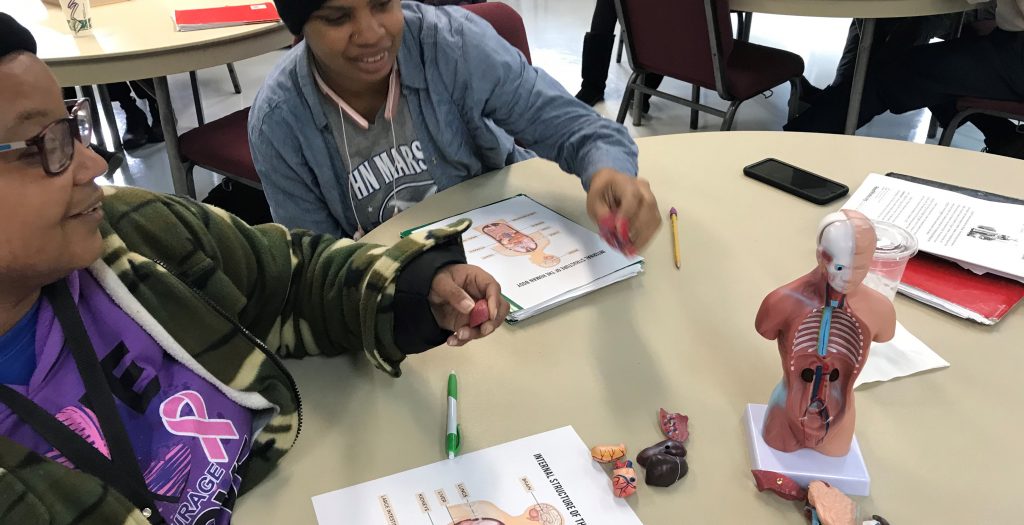“We are more than the lessons we teach. We are a learning community committed to supporting each other in learning and in life. The pandemic has been hard on everyone in the READ community. We will get through it together. ” Karen La Forge, Executive Director
Instead of shopping for back to school clothes and new school supplies, most students in Richmond, across Virginia, and the nation are preparing to begin classes virtually. There will be challenges and obstacles for teachers, parents, and students as the 2020-2021 school year begins. The READ Center faces many of the same challenges as other education communities and more as we serve a population that lacks literacy and digital skills.
The READ Center will begin distance learning classes on September 14. The 15-week fall trimester will be broken into 6-8-week segments (depending on teacher lessons) with time off between the sessions for students, tutors, and teachers to catch their breath and prepare for the next session. Teaching someone to read over the phone or on a computer is not easy. It tries the students, tutors and teachers’ patience and fortitude. The fact that 75% of READ Center students continued instruction by distance learning during the spring and summer trimesters show their commitment to changing their lives, as well as READ’s commitment to help them do so.

Most of READ’s distance learning in the spring and summer trimesters was done over the phone with information mailed to students and tutors for lessons. This process was chosen because READ students lack literacy skills and access to computers and the internet. To support READ’s distance learning efforts Kristin Parson has joined the team as our Distance Learning Coordinator. She will use her reading and online teaching experience to document the barriers READ students face. Kristin will also develop strategies to support students, tutors, and teachers with training, apps, and lessons for online delivery.
This will not be easy. A recent study by the National Skills Coalition shows a “startling one-third of American workers” lack vital digital skills. The report continues, “Due to longstanding inequities, workers of color are over-represented among those with limited or no digital skills. For example, Black workers comprise 12 percent of overall workers, but represent 15 percent of the subset of workers who have no digital skills and 21 percent of those with limited skills.” 83% of READ Center students are Black and 56% read at an elementary school level.
Providing online learning to children who have grown up in a digital world and have the skills to use computers and cell phones is hard. Providing online learning to adults who have never been part of the digital world due to low literacy, never having jobs that required digital skills, and often hiding their lack of literacy and digital skills from family, friends and employers is even harder. However, digital skills are critical to be fully literate in today’s world.
Distance learning will be a challenge for K-12, higher education, and adult education programs. The personal contact and socialization that is part of learning cannot be replicated online. In-person instruction is best, but online instruction is better than no instruction at all. For some students, distance learning will work great, for others – those who are already struggling and learn differently – the loss of learning may never be recovered.
While we all wish we could be together, our concern for the safety of READ Center students, volunteers, and staff means we cannot. Everyone will work together to make the fall trimester a good one. As our students are learning, the READ staff will too. We will continue to build on distance learning initiatives that are working well for students, while exploring new ways to support and expand digital education.
We look forward to the fall trimester and are hopeful for the time when we can welcome students, volunteers, tutors, and teachers back in-person.


